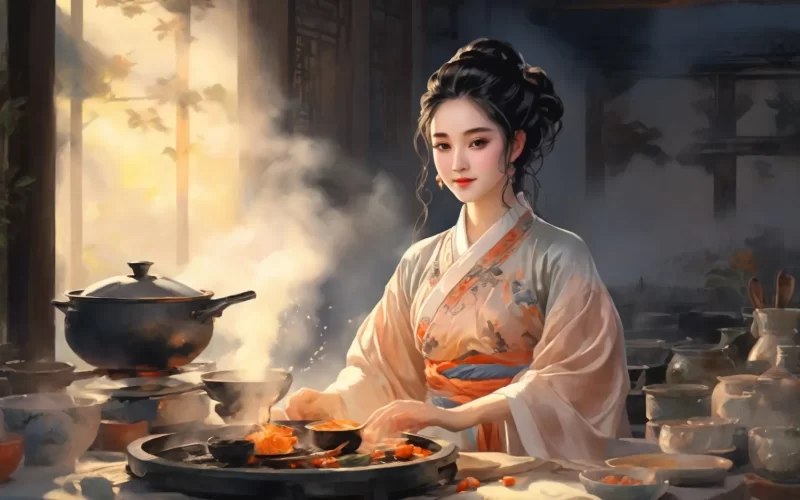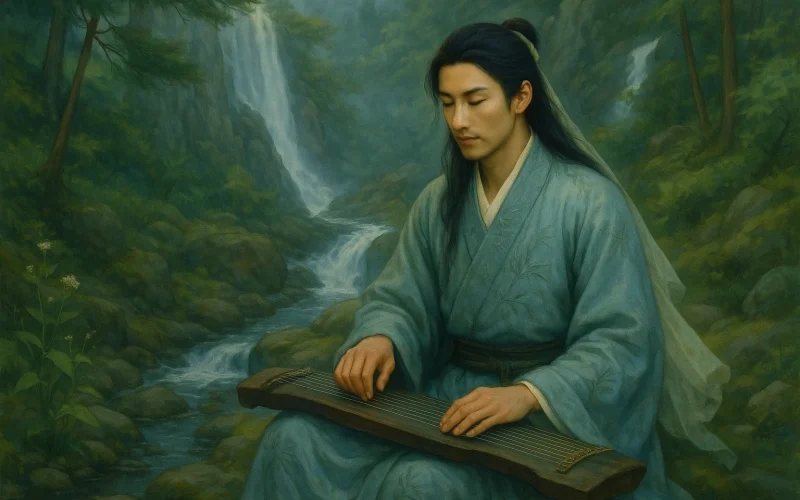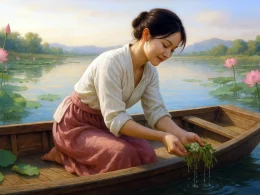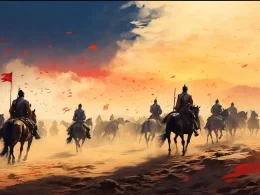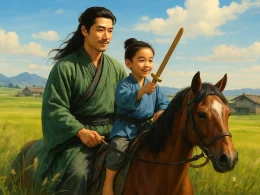On the third day, taking my place to cook,
Washing my hands to make the bridal soup,
I decide that not my mother-in-law
But my husband's young sister shall have the fiat taste.
Original Poem:
「新嫁娘」
王建
三日入厨下, 洗手作羹汤。
未谙姑食性, 先遣小姑尝。
Interpretation:
This is a popular poem about a new bride's cautious and careful mind and her behavior when she first arrives at her in-laws' home.
The first two lines: On the third day after the wedding, I came to the kitchen and washed my hands to make soup myself.
Just arrived at her in-laws' home, she had to be careful in every move. On the one hand, she was afraid of being laughed at, and on the other hand, she was afraid of cold eyes or reprimands from her mother-in-law, which was a common mentality of new brides in the feudal society. How did this new bride cope with this situation? In ancient times, the third day after a woman got married, according to the custom to cook in the kitchen. The bride was solemn and wanted to make the meal better.
The last two sentences: not yet familiar with the tastes of her mother-in-law, do a good job and let her sister-in-law taste it first.
But how can one make this meal good? I've never lived with my mother-in-law and don't know her tastes at all, but my sister-in-law is right next to me! She had lived with her mother-in-law since she was a child, so she must know her tastes, so why not let her taste it? So the clever bride not only solved the problem, but also brought her relationship with her sister-in-law closer and improved her own relationships in her new home. So the new bride finally cooks a meal to her mother-in-law's taste.
The poem portrays a good image of a clever and resourceful new bride through the difficulties encountered by a newly-married girl when she cooks for the first time in her mother-in-law's house and its solution.
Poem translator:
Kiang Kanghu
About the poet:
Wang Jian (王建) was a native of Xuchang, Henan Province, circa 766 - 830 AD. He was admitted as a scholar in 775 AD. He was poor all his life, so he had wider contact with the society and understood the people's situation. His lefu poems reflecting the reality are broad in subject matter and have a certain depth of thought.






